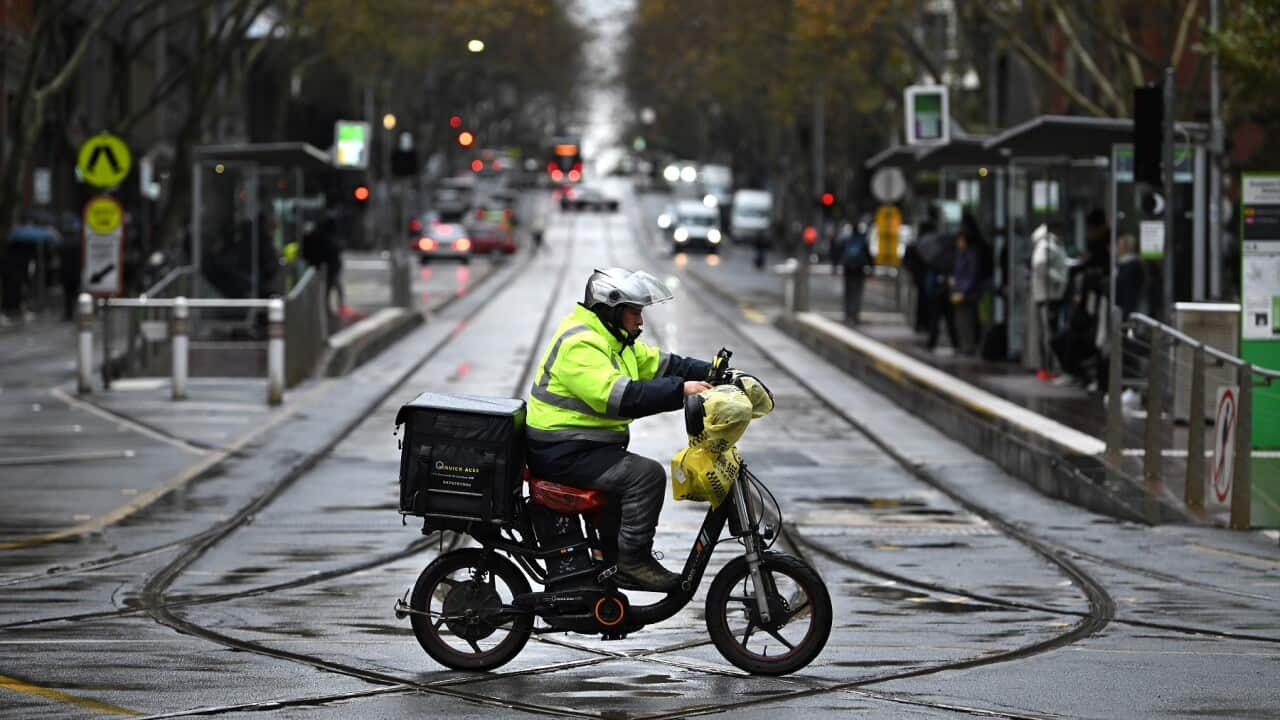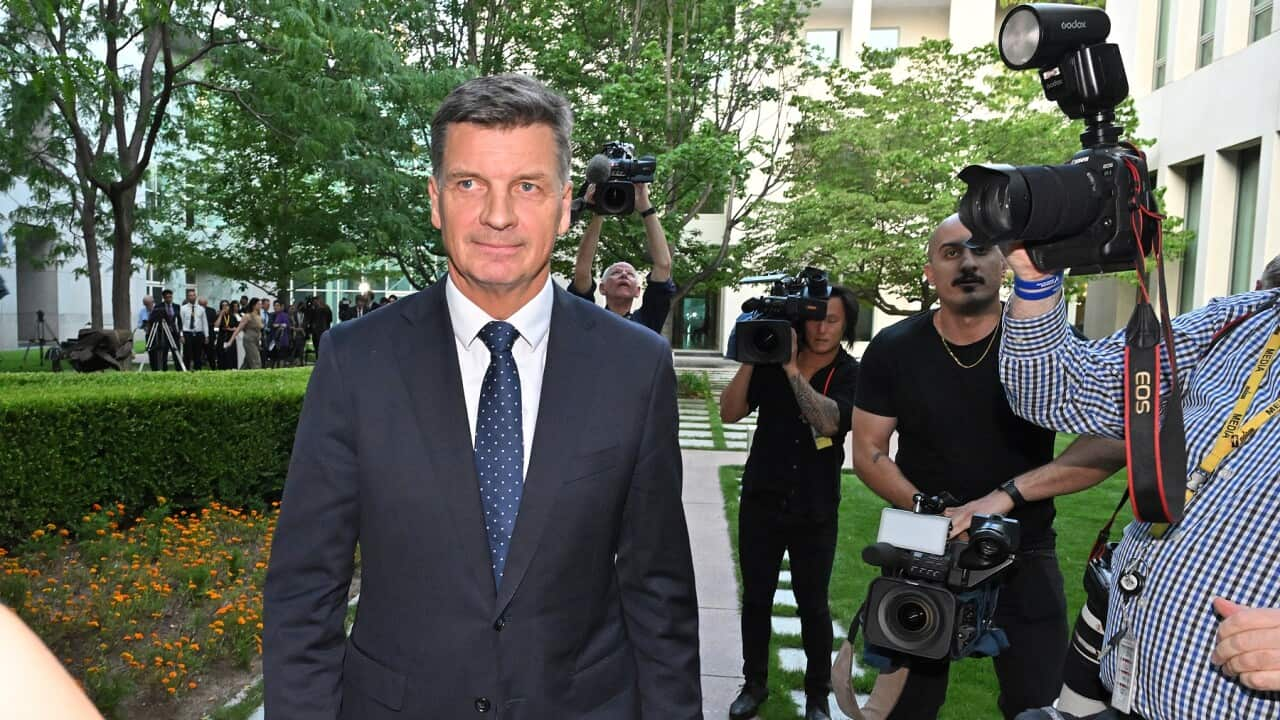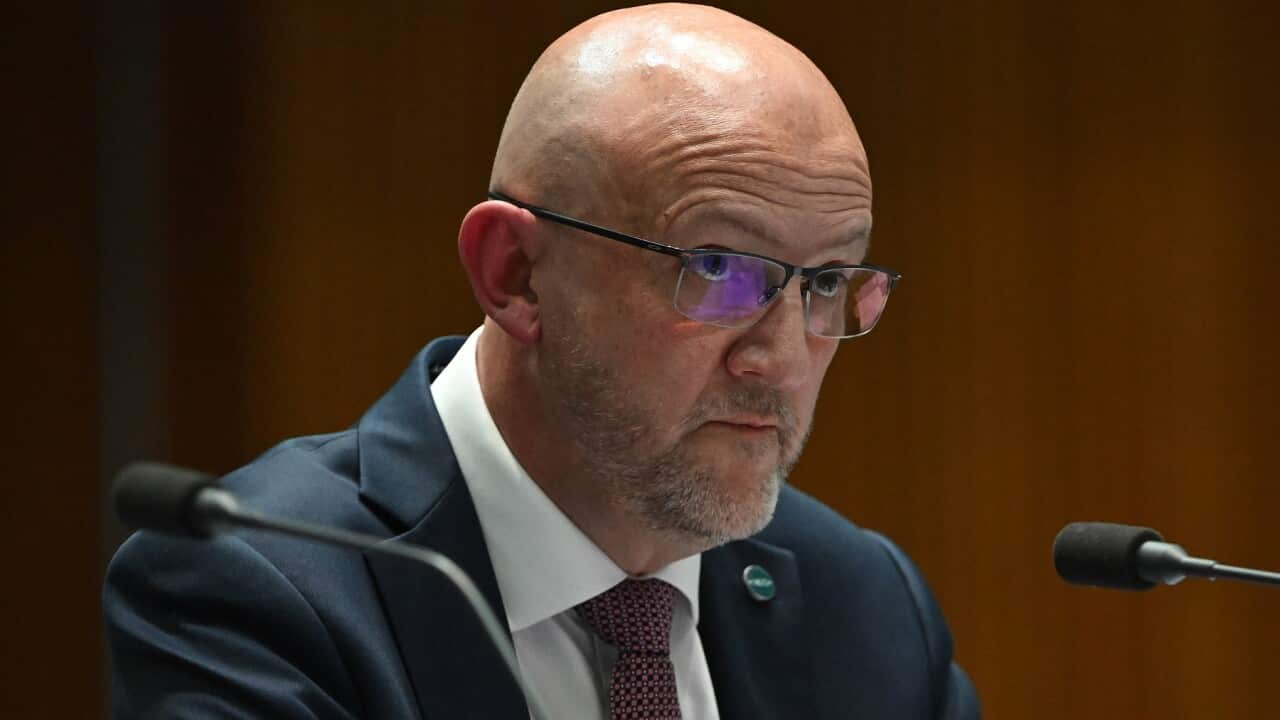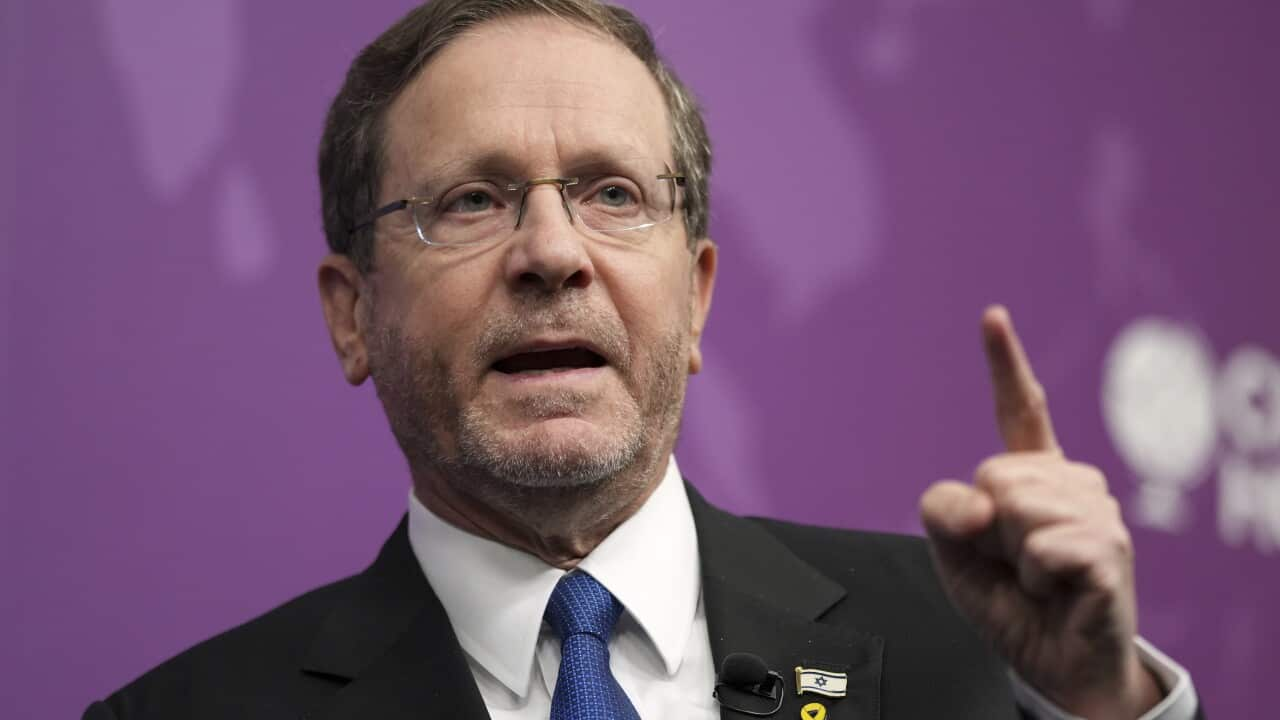Listen to Australian and world news, and follow trending topics with SBS News Podcasts.
TRANSCRIPT
The Albanese Labor Government has agreed to a minimum standards agreement for gig workers in Australia.
A gig worker is someone who earns income by doing short-term, flexible jobs. They're usually not traditional employees with stable hours.
The deal was negotiated between the Transport Workers Union, ride-share company Uber and Doordash and is before the Fair Work Commission.
Following years of fighting by gig workers and the Transport Workers Union the deal delivers minimum conditions and pay standards for food delivery riders.
The deal secures a 25 per cent wage increase above the minimum, provides injury insurance and access to employment records.
It also guarantees the right to protection from unfair algorithmic dismissal, where an automated computer system judges how effective a worker is and sacks them.
Minister for Employment and Workplace Relations Amanda Rishworth says these reforms are a world first.
“Minimum standards, including minimum rates of pay, to ensure that we don't have sort of sub slavery conditions in this country, and so there are workers that had fallen through the cracks, and we took action to fix that law and the agreement that's been struck between the TWU and the platforms is a really profound one.”
The deal also mandates that the platforms must pay for both dispute resolution processes and accident insurance.
The National Secretary of the Transport Workers Union Michael Kaine says there will be a formal consultative process under this new system.
“Uber Eats and DoorDash have engaged with the union constructively and in good faith to reach this position. That is a testament to the system that the Albanese government put in place, that is a system that requires these applications to first go to the road transport advisory group, a formal consultative body under the new system, and compel parties to talk to each other about how best it would be to get standards in place. Then if the impasse, or if there is an impasse that needs to be broken, the Fair Work Commission sits ready to act. “
Utsav is a food delivery driver in Canberra.
He is a member of the Transport Workers Union, and is passionate about the reforms.
He says sometimes drivers will be on the road and there's not enough work, causing people to sit there making hardly any money at all.
The changes will shift the system from a commission-based model to one guaranteeing a minimum wage.
“The drivers that are alongside me, they were crazy enough, the TW members were crazy enough to take that fight, and they've passed laws. They passed, they've been involved with the negotiations. They've done intense negotiation with the companies, and we're this close now to actually get minimum standard. And when I say this, I am proud, but I'm not proud as well, because we're not talking about a decent pay. We're talking about minimum wage. Let that sit with that everybody. It's a minimum wage that we've been fighting for over the last seven years, minimum conditions. It's for this win is for every worker who can now take a sick leave, who can now work 40 / 50, hours and stay home, spend some time with their families.”
Canberra food delivery driver Nabin Adhikari calls the new right to be consulted an unprecedented change.
“We are having a consultation, right, something like we always wanted, for always wanted to speak with someone when we have there is a sudden change from the algorithm or the platform makes a change, and now we are getting that chance. How powerful is that? How powerful a worker, for a worker, when they are making a change, just for the sake of the money, now, they have to discuss with the consult with the worker. Finally, worker will be having a voice. I think that is the most powerful thing...more than the pay, than the Insurance.”
Minister Rishworth was asked about the loophole in the unfair deactivation laws that resulted in the reinstatement of drivers deactivated for severe misconduct.
She responded by saying that the laws were only intended to prevent workers from being unfairly dismissed by algorithms.
“Every rider deserves to be safe...Equally, the code of deactivation was also about ensuring, what we had heard that too many drivers were being deactivated based on an algorithm.”
Uber Eats currently charges a 30 per cent commission on every order.
Until now workers have been paid based on this commission.
So who will pay for the new minimum wage?
Will the increased costs to pay gig workers be passed on to consumers, or will they be absorbed by the platforms?
Dr Alex Feen. a senior lecturer in work and organizational studies at the University of Sydney says the answer is somewhere in the middle.
“It's likely consumers will have to pay slightly higher prices for their deliveries. It may come somewhat from the restaurants who are using these services, and we may also see that the platforms are having to perhaps give up some of their cuts.”
Mr. Kaine says that he hopes that the multinational platforms absorb most of the financial burden.
However, he believes consumers will be willing to tolerate a modest price hike in exchange for fairer worker conditions.
“If you asked the average Australian, would you be okay if you paid a few cents more for your delivery, knowing that the worker who's knocking at your door has proper pay, is appropriately looked after if they're injured, and has terms and conditions that can ensure they can look after themselves and their families. I think that most Australians would say yes to that as well.”
The deal now awaits the decision of the Fair Work Commission, which holds the authority to either approve or reject the agreement.













